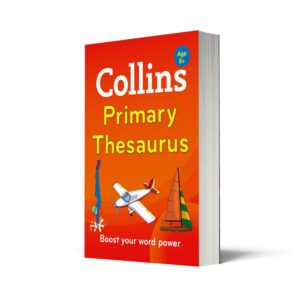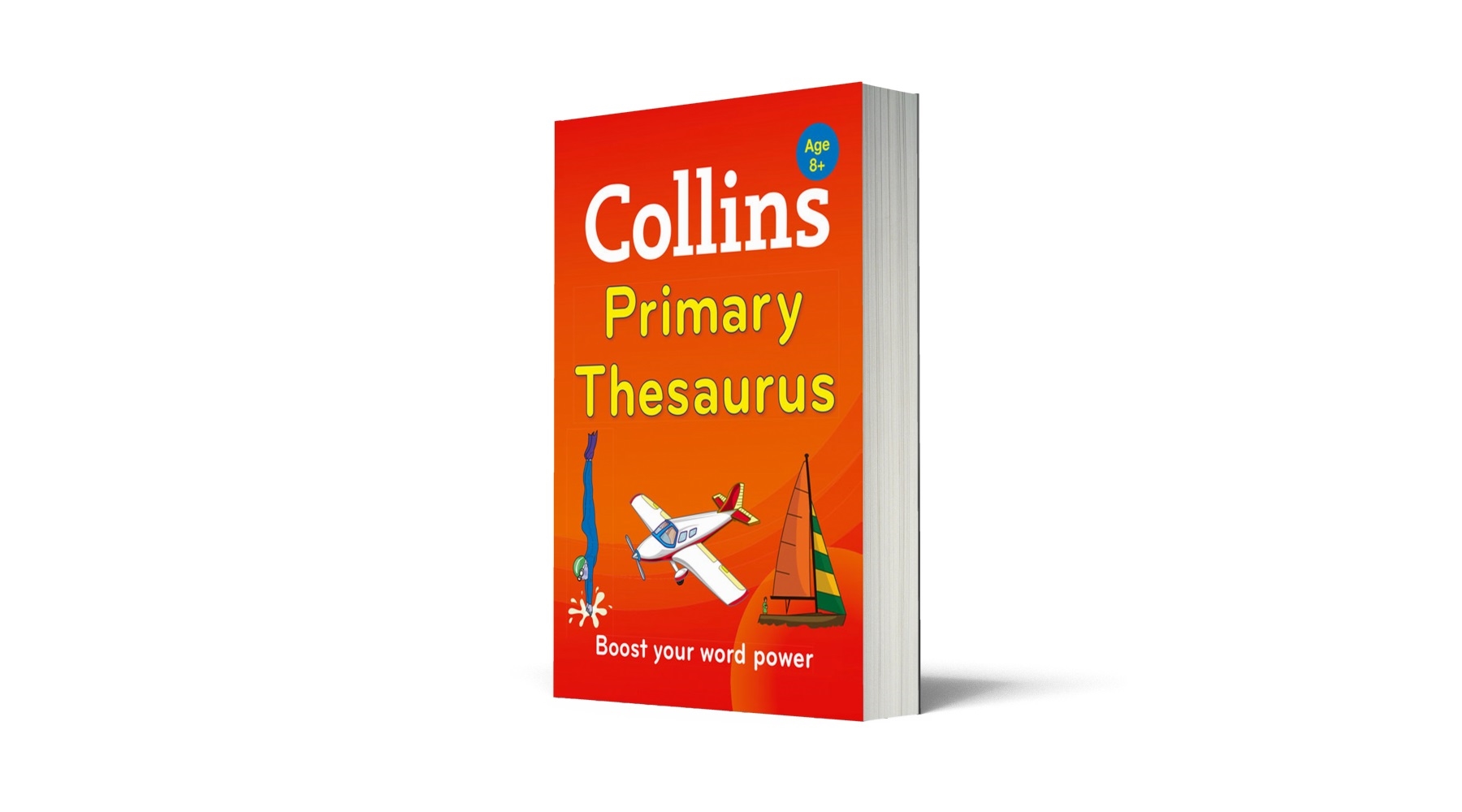Using Collins Primary Thesaurus as an example, here are some clever ways in which the arrangement of a thesaurus can improve pupils’ vocabulary and writing skills
1. At each entry the meaning of the word is explained in a sentence so that pupils can see straight away which sense is the one they want. Looking at the entry bright, there are three senses:  bright colours or things that are strong or startling; someone who is bright is clever; and someone who is bright is cheerful. At each of these senses, the most helpful synonyms are then listed in alphabetical order with an example of each to help pupils understand how they are used.
bright colours or things that are strong or startling; someone who is bright is clever; and someone who is bright is cheerful. At each of these senses, the most helpful synonyms are then listed in alphabetical order with an example of each to help pupils understand how they are used.
2. Any synonyms which are used in informal language are labelled so that they can be used appropriately. For example, it may not be the best synonym choice to replace the word argument with barney in a sentence like ‘The argument between the two world leaders was featured on the front of the newspaper’!
3. As well as a list of important synonyms, key antonyms are given for many entry words. For example, the entry for beautiful offers not just synonyms such as gorgeous, pretty, and stunning, it also offers antonyms such as ugly and unattractive.
4. One key focus in improving writing skills with younger learners is to encourage them to move away from using familiar words and experiment with using more ambitious vocabulary. The Collins Primary Thesaurus places particular emphasis on ‘over-used’ words such as big, good, nice and say by highlighting them with a ‘Wordpower’ feature. This feature draws the pupils’ attention to these particular words as ones for which there is a wealth of alternative, and far more interesting and descriptive, words available that can be used instead.
5. A good thesaurus will encourage children to expand their vocabulary knowledge in a number of subject areas by providing lists of related words. For example, at the entry word army there is a list of words associated with the military or armed forces; at the entry word criminal the lists give words for different types of criminals and crimes committed by criminals, hopefully for children’s reference only! These word lists help younger learners to build associations between words as well as providing them with specific vocabulary they can use in different contexts.
TOP TIP! Although familiar with dictionary usage, children are generally far less aware of how the information in a thesaurus is presented. Although the A-Z organisation of the text is something they are used to from using a dictionary, the selection of words in a thesaurus may come as a surprise, in that many everyday words are not included, for example, apple, monkey, summer. It might, therefore, be useful for children to understand that the purpose of the thesaurus is NOT to find the meaning of words, but to find words with similar meanings. Having this understanding before starting to use a thesaurus will help them realise why certain words have been included or excluded.



